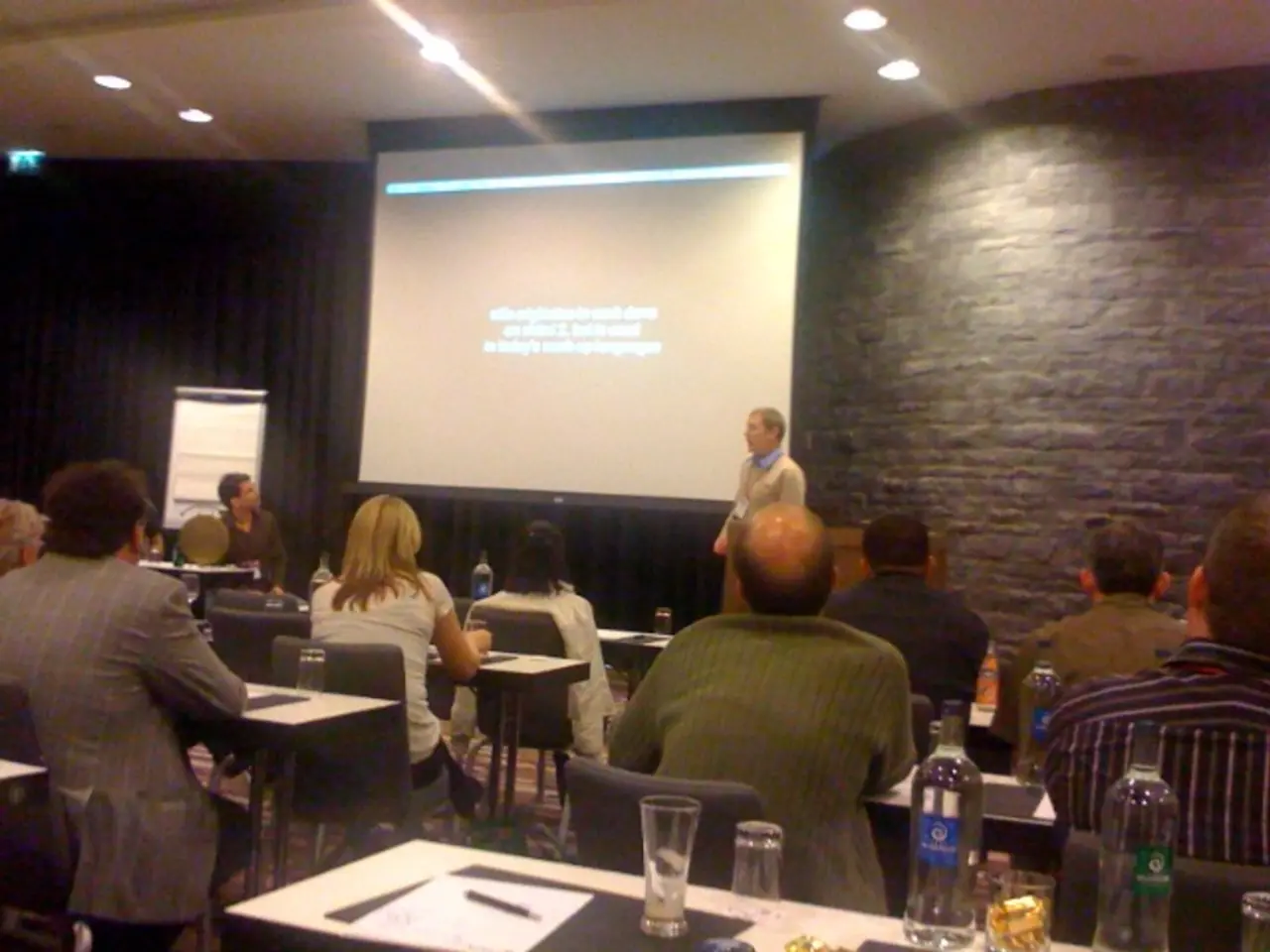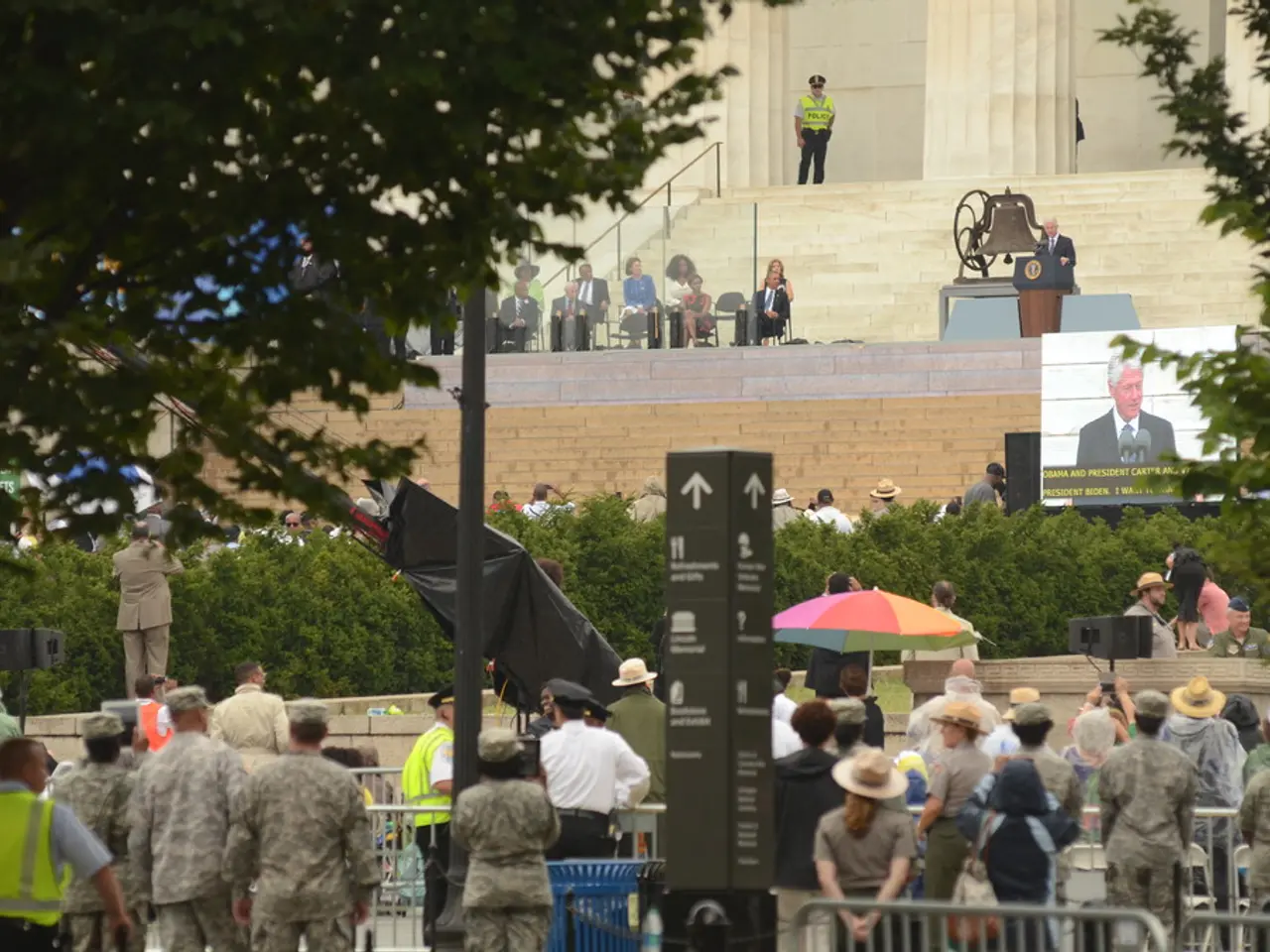Journalist under suspicion of illegally accessing police headquarters
Article Revision
Title: Reporting for BILD/B.Z., Banned, Then Exonerated: A journalist's data debacle at Humboldt University
By A.Lier
In the heart of Berlin, Iman Sefati, a regular pro-Palestinian scene reporter for BILD/B.Z., found himself in an unexpected predicament—banned from Humboldt University. This wasn't due to his reporting or affiliations, but a mysterious data scandal that left him questioning the integrity of the police and public prosecutor's office.
Several days ago, Sefati received a tongue-tingling letter from the university—a ban across all property, valid until July 31, 2028, due to his alleged involvement in an April 16, 2025, lecture hall occupation.joined by 90+ others on Hessische Straße, he occupied the Emil-Fischer lecture hall. Naturally, as a journalist, he maintains he was present as a reporter, not an occupier.
A swift reversal
Most intriguingly, the university had a change of heart. An email to Sefati read, "Withdrawal of the ban... Since it seems there was a mix-up by the police in your case, I am withdrawing the ban... with immediate effect."
But how did this data snafu occur?
Police spokesman, Florian Nath, explains that the Humboldt University requested the data, as per the Code of Criminal Procedure and Civil Procedure. The State Criminal Police Office 52 (State Protection) transmitted the personal data to the university on June 10, 2025, in consultation with the public prosecutor's office.
A journalist, not a criminal
The police indeed collected data from individuals encountered on the day of the occupation under the suspicion of a criminal offense against the house rule. However, with Sefati's case, he was demonstratively present as a journalist. Nath assures a more diligent check for journalist activities before data transmission in the future.
Police on the Press Office Alert
It is worth noting that the reporter was officially representing Axel Springer publishing house. The police's press office will henceforth be involved in these checks.
At least one other individual on the list is recognized as a journalist; however, the police claim this person was acting outside of free press reporting. The trespassing charge remains pending in this case.
A chaotic scene: Riot, Arrests, and Damages
Around 90 individuals stormed the Emil-Fischer lecture hall in the early afternoon. They defaced walls and furniture with slogans like "From the river to the sea, Palestine will be free", painted red Hamas triangles and the word "Intifada". Seats were uprooted and used as makeshift barricades, while lockers were breached, teaching materials destroyed.
95 individuals were temporarily apprehended— occupiers within the lecture hall and sympathizers external to the building. Two police officers sustained injuries. Approximately 100 legal proceedings are ongoing against the suspected perpetrators, including incitement, insult, use of unconstitutional symbols, severe trespassing, disturbance of the peace, and property damage.
A Heavy Toll: Damages Estimated at 100,000 euros
The university had to relocate or conduct affected lectures online as a result of the extensive property damage, estimated to be as high as 100,000 euros.
It appears that the personal data of Iman Sefati was unintentionally exposed or shared with Humboldt University due to inadequate data protection measures during a digital exchange or storage of information between BILD/B.Z. and the university. An investigation is underway to ascertain the complete details of this data breach and to enhance data privacy protocols within media-institution interactions.
- In the realm of general news and politics, the exoneration of Iman Sefati, a journalist, marked a significant turn of events after he was previously banned from Humboldt University due to a data debacle linked to war-and-conflicts reporting and crime-and-justice investigations.
- Despite the withdrawal of the ban, concerns regarding data privacy and the protection of journalists' activities continue to be a pressing issue in the politics and general news, with the police pledging a more diligent check on journalist activities before any data transmission in future exchanges with media institutions.






